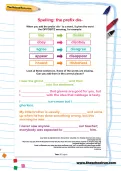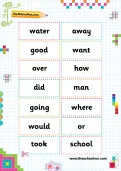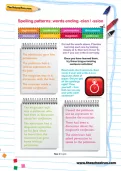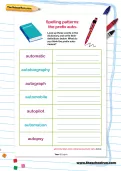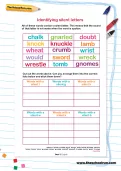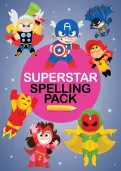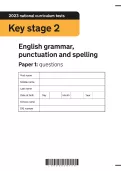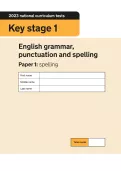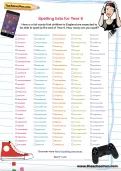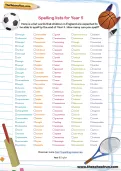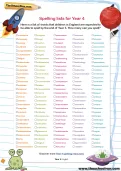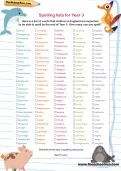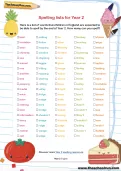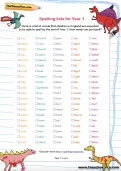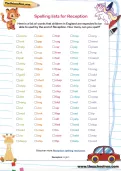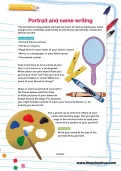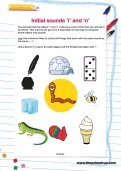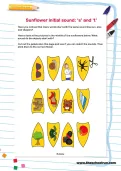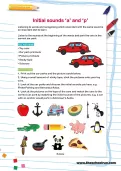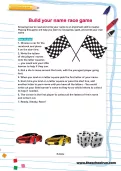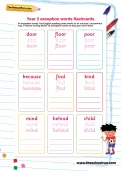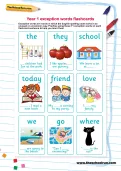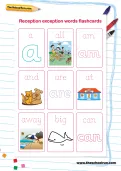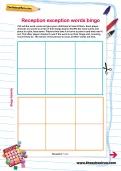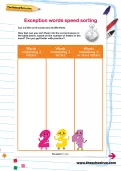Are you a Spelling Superstar? Test your abilities with this fun and challenging spelling pack. Practise high-frequency words, coding short and long vowels, contractions and homophones with these games and activities created by teacher and mum, Clare Winstanley.
Take your spelling to the next level, impress your classmates and boost your confidence with Superstar Spelling.
or
Register to add to your saved resources
Already a subscriber? to view this content.
Help your child prepare for the Year 6 English SATs, taken at the end of Key Stage 2, with some revision and at-home practice. These KS2 SATs past papers from 2023 are the official past papers from the Department for Education, used in schools.
or
Register to add to your saved resources
Help your child prepare for the English KS1 SATs, taken at the end of Year 2, with some at-home practice. These complete Y2 SATs past papers from 2023 are the official Department for Education papers used in schools.
or
Register to add to your saved resources
Here is a list of words that cover the spelling rules children are expected to learn by the end of Year 6. How many can you spell?
or
Register to add to your saved resources
Here is a list of words that cover the spelling rules children are expected to learn by the end of Year 5. How many can you spell?
or
Register to add to your saved resources
Here is a list of words that cover the spelling rules children are expected to learn by the end of Year 4. How many can you spell?
or
Register to add to your saved resources
Help your child excel in spelling with this handy collection of Year 3 spelling words created by an experienced teacher.
or
Register to add to your saved resources
Here is a list of words that cover the spelling rules children are expected to learn by the end of Year 2. How many can you spell?
or
Register to add to your saved resources
Here is a list of words that cover the spelling rules children are expected to learn by the end of Year 1. How many can you spell?
or
Register to add to your saved resources
Here is a list of words that cover the spelling rules children are expected to learn by the end of Reception. How many can you spell?
or
Register to add to your saved resources
This portrait and peg activity will help you learn to read and spell your name and give you a fantastic opportunity to look at how wonderfully unique and special you are.
or
Register to add to your saved resources
Iggy the inchworm likes to collect all things that start with the same sound as his name – ‘i’. Use a pencil or crayon to match Iggy to all the things that begin with ‘i’.
or
Register to add to your saved resources
Have you noticed that many words start with the same sound like sun, star, and slippers? Have a look at these object and see if you recongise the sounds they start with, then cut out the petals and see if you can match the sounds.
or
Register to add to your saved resources
Listening to words and recognising which ones start with the same sound is an important skill to learn. Listen to the sounds at the beginning of the words and park the cars in the correct car park.
or
Register to add to your saved resources
Knowing how to read and write your name is an important skill to master. Playing this game will help you learn to recognise, spell, and write your own name.
or
Register to add to your saved resources
In exception words, the English spelling code works in an unusual / uncommon way. Use these flashcards to help your child practise writing these Y2 common exception words.
or
Register to add to your saved resources
A colourful set of printable flashcards created by a teacher to help Year 1 children learn how to spell common exception words.
or
Register to add to your saved resources
These colourful flashcards include exception words that Reception children need to learn. They were created by a teacher to assist with learning at home.
or
Register to add to your saved resources
Let's play bingo! Each player chooses six exception words to write on their bingo board then take it in turns to pick a card and read it out. The other player checks to see if the word is on their bingo mat, crossing it out if they do. The winner is the person to cross all their words out first.
or
Register to add to your saved resources
Already a subscriber? to view this content.
Let's try some exception words speed sorting! Cut out the word cards and shuffle them. How fast can you sort them into the correct space in the table, based on the number of letters in the word?
or
Register to add to your saved resources
Already a subscriber? to view this content.
